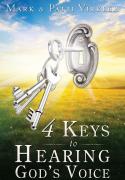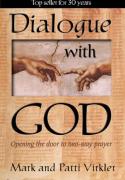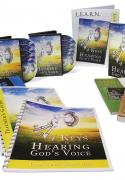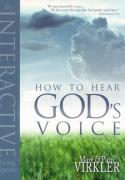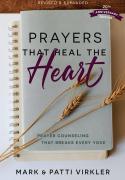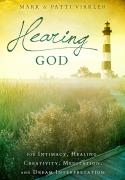Our Training Modules often ask students to memorize Scriptures, as well as other key principles that will release life to them and to others. Anything we ask you to memorize will be important, and not simply "busy work". It will be truths which the Holy Spirit will bring forth from your heart for use as you walk down the road of life.
We Are Commanded to Meditate Upon Scriptures
"Do not let this Book of the Law depart from your mouth; meditate on it day and night, so that you may be careful to do everything written in it. Then you will be prosperous and successful" (Joshua 1:8).
How to Meditate on Scriptures
The words meditate and meditation in the Greek and Hebrew are defined in Strong's Exhaustive Concordance as doing the following:
"To murmur; to converse with oneself, and hence aloud; speak; talk; babbling; communication; mutter; roar; mourn; a murmuring sound; i.e. a musical notation; to study; to ponder; revolve in the mind; imagine; pray; prayer; reflection; devotion."
So I suggest you engage in the above as you meditate upon and memorize Scriptures and other key principles.
We are Commanded to Memorize Scriptures
"I have hidden your word in my heart that I might not sin against you. Praise be to you, O Lord; teach me your decrees. With my lips I recount all the laws that come from your mouth." (Psalm 119:11-13)
How to Memorize Scriptures
-
Pray and ask God through the Holy Spirit to anoint you to memorize effectively. One student recently shared that he had really been struggling with learning the memory work. It had been many years since he had been to school, and he had not been a good student while in school. The thought of all the required memorization nearly overwhelmed him. Finally he realized that he had been trying to accomplish the work in his own strength. He simply laid his need before the Lord, asking Him to help him hide the Word in his heart. Since then, he has found it much easier to do the memorization required and his confidence has soared. Confess this over yourself, "I can do all things through Christ Who strengthens me. I can memorize Scripture! I can do this by the grace of God. Fear, doubt and unbelief, be gone in Jesus' name!"
-
Begin by meditating on the verse. Speak it aloud, pray it aloud, confess it aloud, and declare it aloud. Picture what the verse is saying and picture its impact on your life.
-
Write the verse down on a 3 by 5 card. A pen is one of the best set of eyes you have. As you write, you will see things you have never seen before. God commanded the kings of Israel to write a complete copy of the Law with their own hand (Deut. 17:18). Be a king!
-
Carry these 3 by 5 cards with you and review them throughout the day:
- Tape one card to the bathroom mirror. Read it when brushing your teeth, curling your hair, shaving, etc.
- Tape one card to the cereal box to read during breakfast.
- If you are usually a passenger in your car, tape one card to the dashboard in front of your seat and read it whenever you are riding.
-
Carry one card with you everywhere to read during those short, unproductive pauses in life.
-
"Sandwich" the verse between the reference. For example, "I John 4:8 The one who does not love does not know God, for God is love. I John 4:8."
-
Put the verse to music. Our minds find it easier to memorize songs than sentences. The melodies don't have to be terribly fancy or musically sophisticated; just simple and helpful.
-
Download a Scripture memory app, for example, Remember Me.
- Keep it fun! Keep a smile on your face. This is one evidence that you are trusting God to help you, and in this relaxed posture, memorization and life are much easier.
Memory Techniques by Andrew R. Hardy
Memory is an automatic function of the brain. We all have short term and long term memory. We do not have to think about making our brains remember things; they just do! However, some of us have better memories than others. People with photographic memories do not need help to memorize most things. Indeed the verb "to memorize" does not apply to them they just remember things. For most people, with what may be termed normal memory ability, the real question always seems to come down to a key issue:
"How can I memorize the things I have to remember as perfectly as possible when I really need to?"
There are different ways that will help different types of learners. Here are some ideas:
Visual Learners:
-
A visual learner remembers best by putting pictures and images before their mind's eye. So this is how a visual learner might memorize John 17:3 "This is eternal life that they know you the only true God, and Jesus Christ whom you sent."For each key word, the person pictures an object which they then associate with that word. For example:
- "eternal" picture of endless straight road
- "life" a new-born baby
- "know"
- a brain
- "true" a truthful friend
- "God" a church
- "Jesus" a picture of Jesus
- "sent" a letter
-
Verbalize each word of the Bible verse and picture each word as
a memory flash with something like the above as a mental image,
placing the images in sequential order. Do this a few times over
a few days and a visual learner will remember the Bible verse.
The same can be done with ideas you want to remember.
Auditory Learners:
An auditory learner will learn by repeating verses out loud so he or she can hear them doing so a few times a day for a few days. Write the verses or idea on some cards one per idea or verse then read them out loud to yourself. Auditory learners remember things the best if they use their love of sound memory to be creative. So ponder the words you are remembering by trying different dramatic ways of reading them out loud to yourself.
Conceptual Learners:
Conceptual learners remember things by understanding them. In this case, work word at understanding the key concepts of a verse or idea. Then remember the verse by recalling the key concept, and the words will come back to memory. A useful technique is to use "cognate" words those words in a verse which capture the key meaning of a verse. Remember the key ideas in the right consecutive order and you will remember the verse.
Affectual Learners:
Affectual learners remember things by how they feel about them. In this case, the affective learner asks, "What feeling do I relate to eternal life?" And again "What feeling do I relate to knowing God?" By associating feelings with the key words in a verse of Scripture the affectual learner will best remember a verse or material learnt.
Concrete Learners:
A concrete learner learns by doing things with their hands and body. So when remembering a verse or idea, the concrete learner may write the words of a verse out before their faces in the air so to speak. This concrete way of writing in the air or on paper can make learning the verse much easier.
Summary - You Use Several of the Above Learning Styles
Really we all have primary, secondary, etc., learning styles, and memory techniques will work the best by identifying your primary style, and then your next strongest style. It is easiest to recognize your preferred styles by asking yourself "What things have I remembered clearly in the last two months?" and "How did I come to remember them: Because I see them in my mind's eye? Because I feel strongly about them? Because I wrote a lot about them? Because I love the way the words sounded when they were read or said to me?"
In other words, find out which way/s you most often remember things and then use one or two of the techniques above. If you cannot identify what works best for you, try out all of the above and see which is most effective for you at the moment. None of us can be defined by one sort of memory, so we may choose to use more than one method to memorize things.


